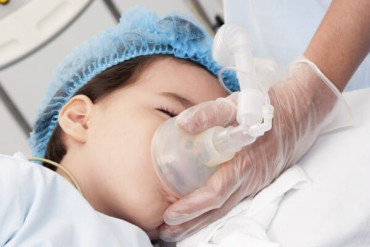Why Did My Child Have An Arrhythmia During Surgery?

The process of having surgery and undergoing general anesthesia gives many patients anxiety. There is always some fear of the unknown in what may happen or what the doctors may find. When the surgical patient is a child, these worries are amplified by the parents. Mothers and fathers often feel helpless while they are trusting the well-being and health of their child to a medical staff of doctors and nurses.
Unfortunately, no matter how many opinions you receive or how many precautions you take, there is no way to eliminate all risk when it comes to surgery. One detail in particular that should be addressed for pediatric patients is the presence of an arrhythmia before surgery or the risk of it being developed afterwards.
Basic Overview Of An Arrhythmia
Children with an arrhythmia have an abnormal heartbeat. This could mean that their heart is beating irregularly, too quickly or too slowly. Essentially, there is a concern with the rate and/or rhythm of their heartbeat. While you may initially think that any type of condition impacting the heartbeat is cause for alarm, this is not necessarily the case. Some arrhythmias in children are so minor and brief that they do not influence the overall heart rate or rhythm, and these types of arrhythmias are harmless. On the other hand, more severe arrhythmias can be life-threatening. When the heartbeat is impacted significantly, it may result in blood being pumped less efficiently. This can lead to issues with the brain and other organs, with an end result that could include organ damage or complete organ failure.
Know The Risk Factors For An Arrhythmia
Before allowing your child to undergo surgery, it is important to let the medical staff do any necessary testing to have a complete overview of your child’s health. This can help determine if your child faces any of the common risk factors for an arrhythmia. Pediatric patients with conditions that effect the function and strength of the heart are more likely to develop an arrhythmia. A few of the specific risk factors include:
- Congenital heart conditions
- Heart disease
- Heart valve disease
- Diabetes
- Sleep apnea
- High blood pressure
- Heart attack (not commonly seen in children, but important to note)
The Impact of Anesthesia
Even if your child did not have an arrhythmia prior to surgery, there is a chance that this condition could manifest itself afterwards. General anesthesia is given to pediatric patients to keep them asleep and comfortable during most major surgical procedures. Research has shown that this mix of medication has the potential to cause abnormal heartbeats. While this may not happen frequently, the possibility exists.
Determining The Root Of The Problem
The development of a condition that impacts your child’s heartbeat is enough to send any parent into a tailspin. Plus, there are significant risks associated with having an arrhythmia. The chances of cardiac arrest, heart attack and stroke are all increased in individual’s who have an abnormal heartbeat. In severe cases, brain damage can occur if the body becomes deprived of a sufficient oxygen supply (hypoxia).
If your child had an arrhythmia during or after surgery, it is important for you to seek answers on the cause. Did the entire medical staff have a full list of all medications that your child had been taking? Certain medications can cause an arrhythmia when they are mixed with anesthesia, so it should have been noted. Was a thorough physical performed and medical history taken prior to surgery? The results of these could have revealed any underlying or undiagnosed issues.
Child medical matters can be painful to deal with, but we are here to help. If your child had an arrhythmia during surgery, our team of experienced doctors and lawyers can help you determine if there could have been a better outcome. Contact us today.
Disclaimer: Ross Feller Casey, LLP provides legal advice only after an attorney-client relationship is formed. Our website is an introduction to the firm and does not create a relationship between our attorneys and clients. An attorney-client relationship is formed only after a written agreement is signed by the client and the firm. Because every case is unique, the description of awards and summary of cases successfully handled are not intended to imply or guarantee that same success in other cases. Ross Feller Casey, LLP represents catastrophically injured persons and their families in injury and wrongful death cases, providing legal representation in Pennsylvania and New Jersey.





